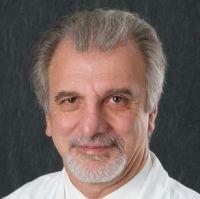Ricardo Jorge, MD

Dr. Ricardo Jorge has an internationally recognized trajectory of clinical research in neuropsychiatry, particularly in the study of the behavioral complications of patients with traumatic brain injury (TBI), cerebrovascular disease, or neurodegenerative disorders such as Alzheimer’s disease and Parkinson’s disease. In the field of TBI, he was a pioneer in the study of the prevalence, phenomenology, clinical correlates, mechanism and consequences of mood and anxiety disorders, abnormal emotional processing and aggression occurring after TBI. He studied the efficacy of antidepressants to prevent the occurrence of these frequent behavioral complications and assess whether early treatment with antidepressants improves TBI patients’ recovery and return to a productive life. A similar body of research was conducted in the stroke. Furthermore, they were pioneers in the use of repetitive transcranial magnetic stimulation (rTMS) to treat depressive disorders in patients with post-stroke depression and vascular depression.
As Director of the Houston Translational Research Center for TBI and Stress Disorders (TRACTS), Dr. Ricardo is studying the phenomenology and clinical correlates of post-traumatic stress disorder (PTSD) and mood disturbance occurring among OIF/OEF/OND veterans as well as the way in which coexistent TBI affects the clinical presentation and treatment response of these veterans. Furthermore, they are also conducting projects to develop pharmacological interventions to treat neuroendocrine disorders among OIF/OEF/OND Veterans with TBI including a large multicenter trial (25 sites) on the efficacy of growth hormone replacement therapy in this population. Their new projects in the area of non-invasive brain stimulation include examining the efficacy of home based, remotely monitored, transcranial direct current stimulation (tDCS) as treatment of vascular depression and the use of transauricular vagal nerve stimulation (taVNS) for the treatment of gastroparesis. They are enthusiastic and pleased to collaborate with the program of the BSSMC.
